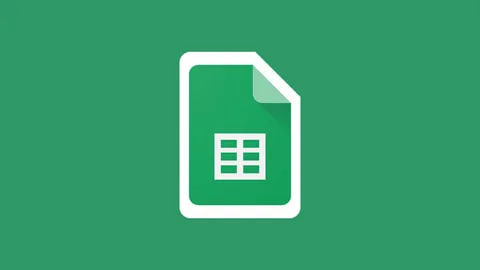Credit cards have become an integral part of modern financial management, offering convenience, security, and a wide range of benefits. But understanding how to use them effectively and responsibly is crucial. In this guide, we will explore various aspects of credit cards, from their benefits and types to tips for choosing the right card and managing debt.
What Are Credit Cards?
Credit cards are financial tools issued by banks and credit unions that allow users to borrow money up to a pre-set limit. They can be used for everyday purchases, paying bills, or even large expenses. Unlike debit cards, which draw directly from your bank account, credit cards offer a line of credit that must be repaid, either in full or over time, with interest.
Types of Credit Cards
There are various types of credit cards available, each designed for specific needs:
- Rewards Credit Cards: These cards offer points, miles, or cashback on purchases.
- Balance Transfer Credit Cards: Ideal for those looking to transfer high-interest debt from one card to another with lower or 0% interest.
- Secured Credit Cards: Designed for individuals with poor or no credit history, requiring a security deposit as collateral.
- Student Credit Cards: Tailored for students, these cards often come with lower fees and rewards.
How Do Credit Cards Work?
When you use a credit card, you’re borrowing money from the issuer, which you’ll need to pay back later. If the balance isn’t paid in full each month, interest is charged on the remaining balance. The key to using credit cards wisely is to understand their terms, including the interest rate, fees, and rewards structure.
Advantages of Using Credit Cards
Credit cards offer numerous benefits when used responsibly. They can help build credit, offer rewards, and provide purchase protection. Let’s delve into some of these advantages.
Building a Credit History
Using a credit card responsibly is one of the fastest ways to build a credit history. A strong credit history is essential for obtaining loans, mortgages, and even some jobs. Regular, on-time payments and low credit utilization show lenders that you’re a responsible borrower.
Earning Rewards and Cashbacks
Many credit cards offer rewards programs that can earn you points, miles, or cashback on your purchases. These rewards can be redeemed for travel, gift cards, or statement credits. Selecting a card that aligns with your spending habits can maximize these benefits.
Interest-Free Purchases
Credit cards offer a grace period, usually around 21-25 days, where no interest is charged on new purchases. This allows you to make interest-free purchases if you pay your balance in full each month.
Choosing the Best Credit Card
Choosing the right credit card depends on your financial needs and habits. Here are some factors to consider.
Factors to Consider
- Interest Rates: Look for a card with a low APR, especially if you plan to carry a balance.
- Fees: Some cards come with annual fees, late payment fees, or foreign transaction fees.
- Rewards: Choose a card with rewards that match your spending habits, whether it’s for travel, dining, or groceries.
- Credit Limit: A higher credit limit can be beneficial, but it’s essential to use it responsibly to avoid debt.
Comparing Credit Card Offers
When comparing credit card offers, pay attention to the sign-up bonuses, rewards rates, and any additional benefits such as travel insurance or purchase protection.
The Best Credit Cards for Different Needs
Whether you’re a frequent traveler, a cashback enthusiast, or someone looking to build credit, there’s a card for you. Research and find the card that offers the best combination of rewards and benefits for your specific needs.
Managing Credit Card Debt
Credit card debt can quickly become overwhelming if not managed properly. Here are some strategies to keep it under control.
Strategies to Avoid Debt
- Create a Budget: Knowing how much you can afford to spend on your credit card each month helps prevent overspending.
- Pay Your Balance in Full: Avoid interest charges by paying your balance in full every month.
- Avoid Cash Advances: Cash advances often come with high fees and interest rates.
Paying More Than the Minimum Payment
Paying only the minimum amount due each month can lead to high interest charges and prolonged debt. Always aim to pay more than the minimum to reduce your balance faster.
Balance Transfers and Debt Consolidation
If you have high-interest credit card debt, consider a balance transfer to a card with a lower interest rate or 0% introductory APR. This can help you pay down debt faster. However, be mindful of balance transfer fees.
Tips for Effective Credit Card Usage
Using credit cards wisely can help you avoid debt and build a positive credit history.
Keep Your Credit Utilization Low
Credit utilization refers to the percentage of your available credit that you’re using. Aim to keep this below 30% to maintain a good credit score.
Pay Your Bill on Time
Late payments can result in fees and a drop in your credit score. Set up automatic payments or reminders to ensure you never miss a due date.
Use Rewards Wisely
Make the most of your credit card rewards by using them for planned purchases or to offset your statement balance. Avoid unnecessary spending just to earn rewards.
Common Credit Card Mistakes to Avoid
Even experienced users can make mistakes that negatively impact their financial health. Here are some common pitfalls.
Overspending
Credit cards make it easy to spend money you don’t have. Avoid falling into the trap of overspending by sticking to your budget.
Applying for Too Many Cards
Each time you apply for a credit card, it results in a hard inquiry on your credit report, which can lower your score. Only apply for cards that you truly need and can manage.
Ignoring Fees and Interest Rates
Always read the fine print. Understanding your card’s fees and interest rates can help you avoid unexpected charges and better manage your spending.
Credit Cards for Building Credit
For those new to credit or looking to rebuild their credit, choosing the right type of card is crucial.
Secured vs. Unsecured Cards
Secured credit cards require a security deposit and are easier to obtain with poor credit. Unsecured cards don’t require a deposit but may come with higher fees and interest rates.
How to Use a Credit Card to Build Credit
- Make On-Time Payments: Payment history is the most significant factor in your credit score.
- Keep Balances Low: High balances can negatively affect your credit score.
- Don’t Close Old Accounts: The length of your credit history matters. Keep older accounts open and active.
Credit Cards for Students
Student credit cards are designed for young adults who are new to credit. They typically have lower credit limits and may offer rewards or incentives for responsible usage.
Conclusion
Credit cards are powerful financial tools that, when used responsibly, offer numerous benefits such as building credit, earning rewards, and providing purchase protection. However, it’s essential to choose the right card and manage it wisely to avoid debt and other financial pitfalls. Whether you’re new to credit or a seasoned user, understanding the nuances of credit card usage is key to maximizing their benefits and maintaining financial health.



